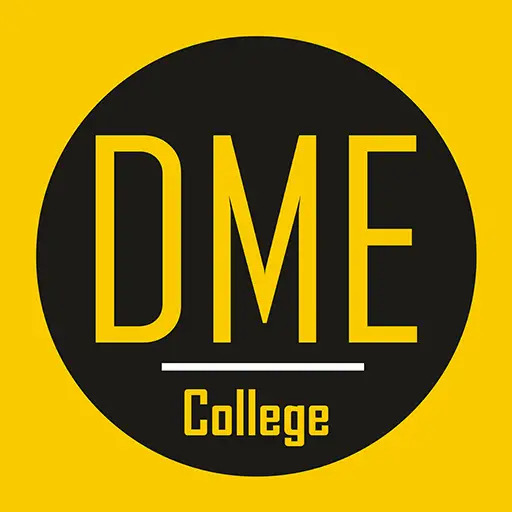
Choosing the right course of study in sync with your career goals is definitely important; but, equally important is the choice of the institute from where you would be pursuing your study. The same thumb rule applies to the study of law where the choice of the right institute out of the select list of top law colleges in India will matter in a big way.
If you are looking forward to pursuing this course in Delhi NCR, the standard first step would be to make a list of the top law colleges in this region, which should include the names of the top private law colleges in Delhi as well as the best IPU law colleges in Delhi NCR.
Thereafter, in order to choose the right private law college in Delhi for yourself, you will need to clearly identify your personal career goals, research the relevant college reputations, assess the particular course curriculum and faculty, and consider the college’s location, their facilities, and its specific placement records. Furthermore, you must prioritize colleges with strong industry connections, internship opportunities, and a supportive alumni network.
To help you further in this endeavour, here’s a more detailed breakdown for your consideration:
How to Choose the Right Private Law College in Delhi Based on Your Career Goals
1. Spell Out Your Career Goals
Check Specializations
You must ascertain the specific areas of law that you are interested in – for example, corporate law, intellectual property, criminal law.
Check Career Paths
You must find out all the potential career paths associated with your chosen specializations – like, lawyer, legal consultant, judge.
Check Long-term Objectives
You must consider your long-term career aspirations – for example, working in a specific industry, starting your own firm, and so on.
2. Research Law Colleges
Check Reputation
You must look into the respective college’s overall reputation and standing within the legal community.
Check Rankings
You must check for rankings from reputable sources like the National Institutional Ranking Framework (NIRF).
Check Accreditation
You must make sure that the college is duly recognized and formally affiliated with a reputable university as per the academic norms.
Check Faculty Credentials
You must do a check about the faculty’s qualifications, experience, and their teaching styles.
Check Academic Infrastructure
You must also evaluate the college’s academic infrastructure facilities, that may include libraries, moot court halls, and technology resources.
3. Scrutinize Curriculum & Specializations
Check Curriculum Alignment
You must make sure that the curriculum aligns with your chosen areas of law and career goals.
Check Specialization Options
You must check if the college offers all the specialized programs or courses in your areas of interest.
Check Practical Training Opportunities
You must check for the opportunities for practical training – like, moot courts, internships, and clinical programs – that may be available at the college.
4. Location & Facilities
Location
You must consider the location’s proximity to law firms, courts, and other legal institutions.
Facilities
You must assess the quality of infrastructure, including libraries, computer labs, and moot court halls.
5. Verify Internship & Placement Claims
Internship Programs
You must probe the institute’s tie-ups with law firms, corporate houses, or NGOs for internships.
Placement Record
You must check the college’s placement statistics and the visiting companies that recruit from the campus.
Alumni Network
You must scout the college’s alumni network and its connections within the legal industry.
6. Weigh the Financial Considerations
Cost of Education
You must compare the tuition fees and other expenses obtaining at different colleges.
Scholarships & Financial Aid
You must inquire about available scholarships and financial aid options.
7. Student Life & Extracurriculars
Student Body
You must look for a diverse and inclusive student body that fosters a vibrant learning environment.
Extracurricular Activities
You must consider the college’s offerings in terms of extracurricular activities, such as moot court competitions, legal aid clinics, and cultural events.
8. Personal Fit
Instincts
You must trust your instincts when assessing a college and its suitability for your personality and learning style.
Student & Alumni Input
Seek input from current students and alumni to gain insights into the college’s culture and academic environment.
We hope that the above explanation will help you decode the answer to the query “How to Choose the Right Private Law College in Delhi Based on Your Career Goals”. And while you are on this page, may we also suggest you to explore Noida-based DME Law School that is not only stands tall as one of the top private law colleges in Delhi as well as the best IPU law colleges in Delhi NCR , but also features prominently high in the select list of top law colleges in India will.
Explore More – How to Do LLB in Delhi
About DME Law School
DME Law School is an integral part of Delhi Metropolitan Education (DME) that was established on 1st August, 2012, under the aegis of Sunshine Educational & Development Society which has been working dedicatedly in the field of education for over 16 years. DME is affiliated to the prestigious Guru Gobind Singh Indraprastha University (GGSIPU), New Delhi and is approved by the Bar Council of India.
DME envisions creating future leaders and nation builders by its endeavours in educating young minds. The institute is committed towards forming and sustaining conditions enabling students to embark on an unparalleled educational journey that is intellectually, socially, and personally transformative and enriching. DME offers sought after courses in the field of Management, Journalism and Law.
At the Undergraduate Level, DME Law School offers Five-year Integrated Law Courses – namely, BA.LLB and BBA.LLB Honours Courses. And, at the Post Graduate Level, it offers a One-year duration LL.M in Corporate Law and Alternative Dispute Resolution Course.
DME Law School runs GGSIPU affiliated and Bar Council Approved Five-year Integrated Law Courses. BA-LAW and BBA-LAW are professional degree courses that equip the students with knowledge and skill of every branch of law and make them articulate, accurate, and meticulous in plain-drafting and sharp in court arguments.
Offering students a unique opportunity to delve deeper into specialized areas of law, DME’s LL.M program with a specialized focus on Corporate Law and Alternative Dispute Resolution is carefully designed to provide an extensive knowledge base in these critical legal domains.
Read More – How to Choose the Best Private College in Noida
Concluding WordsThat brings us to the close of this article, which we hope will turn out to be helpful in answering the query “How to Choose the Right Private Law College in Delhi Based on Your Career Goals”. And, if you wish to know more about DME Law School, you may click on this link below: https://law.dme.ac.in/


